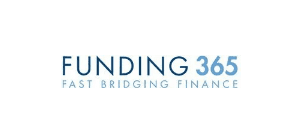-
The widest choice of bridging finance providers
-
Short term bridge loans from 0.44% per month
-
Access the widest choice of specialist lenders in the Irish market
-
Compare interest rates from over 100 lenders
-
Bridging loans from €26k to €250m
Bridging loans and development finance - funding for up to two years
Secured lending for developers, property investors, company directors, and HNWIs
Want to arrange a bridging loan to purchase residential investment property?
Need a light refurbishment loan to develop commercial property that you intend to either sell or rent out to tenants after completing the works?
Does your business need to raise funds to pay its VAT/tax bill or to purchase new stock and equipment?
Whatever your funding requirements, you can rely on our team’s lending experience to find you the right financial solution.
Our in-house bridging loan team has helped clients across Ireland secure funding on commercial, residential or agricultural property for multi-purpose use.
Whether through our established panel of 100+ mainstream lenders, family offices, and private lenders or through a specialist alternative finance provider, our mission is to find you the bridging loan that offers the most competitive interest rates on the most favourable borrowing terms.
To apply for secured short term property finance through Finbri, please click the Start Here button on this page.
What can I fund with a bridge loan?
As well as for purchasing commercial, residential, or mixed-use property, bridge loans are also used for the following purposes:
- Stopping bankruptcy proceedings
- Improving business cashflow
- Consolidating debt
- Financial issues surrounding probate
- Repayment of creditor arrears
- Residential, commercial & agricultural land purchases
- Residential, commercial & agricultural property renovations, conversions, extensions & refurbishment
- Stock purchasing
- Stopping repossessions
- Pay due taxes
- Working capital for businesses.
Bridging loan - your questions answered
Can I secure funding to purchase an investment property?
The property market in Ireland moves fast - we appreciate that.
You can use a pre-arranged bridging facility through us to purchase, for example:
- Residential investment property at auction or
- Property that is currently in an unmortgageable state that you want to renovate.
What can I secure bridging property finance on?
You can secure bridging loans on commercial, residential, or mixed-use property in Ireland or the United Kingdom.
If you're using a bridge loan to purchase property, the property you’re buying will be the security your lender takes.
If you wish to raise money from equity accrued in a commercial, residential, or mixed use property you already own, the lender takes that as security.
If you still have a mortgage on a property you're offering as security, you'll be offered a second-charge bridging loan. If you own the property outright and you have no loans secured against it, you'll be offered a first-charge bridging loan.
How much can I borrow?
You can borrow between €26,000 and €25m via us.
How do I pay a bridging loan off?
In most cases, a borrower pays off their bridging loan and the interest accrued on it all in one tranche - there are no monthly payments to make like with a traditional mortgage.
When you repay the loan in full, this is often called the exit event. All bridging loan applications need to include details of the planned exit event.
There are two types of bridge loans - open and closed. With a closed bridge loan, you commit to making repayment in full on a particular date in the future. With an open bridge loan, there is no fixed date on which full repayment must be made although the terms of these loans are generally no longer than 24 months.
If you use a bridge loan to purchase property or to improve and add value to property you already own, you will repay your finance facility:
- from the proceeds of the sale of that property,
- by arranging a buy-to-let mortgage if you intend to rent out the property to commercial or residential tenants, or
- in the case of a company wanting to occupy the premises it has purchased, by arranging a commercial owner-occupier mortgage.
If you use a bridge loan to raise cash for a purpose not related to the acquisition or renovation of property, the way you pay your loan varies.
For example, many companies use a bridge loan to pay tax and VAT to the Office of the Revenue Commissioners to cover short-falls in cash caused by temporary drops in sales revenues. When your revenues recover, you repay your facility in full.
Alternatively, some companies will use bridge finance to bulk-purchase stock on special terms from their suppliers to secure a discount. When the stock has been partly or wholly sold, revenues from those sales can repay the facility.
Whatever you need to borrow money for, get in touch with us. We’ve successfully arranged bridging loans for clients with non-standard exits including the receipt of proceeds from an inheritance to the maturing of an insurance policy.
How much do bridge loans cost?
The cost of bridge funding is determined by two factors - rates of interest charged on funds borrowed and how long you borrow money for.
Unlike with standard residential or commercial mortgages where the rate of interest is quoted annually, rates are quoted monthly on bridge loans. The longer your borrow money, the more your facility will cost.
There may be other fees associated with arranging a bridging facility however you will be fully advised on all fees prior to proceeding.
Are refinancing options available if I can't meet the exit date?
If you're unable to pay back your lender by the agreed date, it is possible in most cases to refinance the facility via another lending provider.
Please note that these facilities generally will be more expensive than the original loan being rolled over.
What loan to value ratios are on offer?
You can borrow up to 80% of the value of the properties you offer as security.
For example, if you wish to purchase a property worth €500,000, you will need a 20% deposit equivalent to €100,000.
If you wish to raise money against property you own on which there is a mortgage, what you borrow from your bridging provider cannot, in addition to your mortgage, exceed 80% of the current market value of the property.
For example, if you own a property worth €500,000, the maximum amount of debt secured on the property must not exceed €400,000 (80% of €500,000). So, if you have €200,000 left to pay on your mortgage, you may borrow a maximum of up to €200,000 (80% of €500,000 minus the €200,000 remaining on your mortgage equals €200,000).
You can borrow up to 100% of the value of the property you wish to purchase or offer as security if you provide additional property as security. Please arrange a free no-obligation call with us for more information.
How long does the decision making process take?
We can give you an immediate decision in principle in most cases. Completion can be in as little as 3 days to 2 weeks.
Who can use a bridging facility?
The following types of company may apply for bridging finance:
- Private Company Limited by Shares (LTD)
- Designated Activity Company (DAC)
- Company Limited by Guarantee (CLG)
- Public Limited Company (PLC)
- Limited Partnership (LP)
- Societas Europaea Company (SE)
We currently do not offer bridge loans to individuals.



























